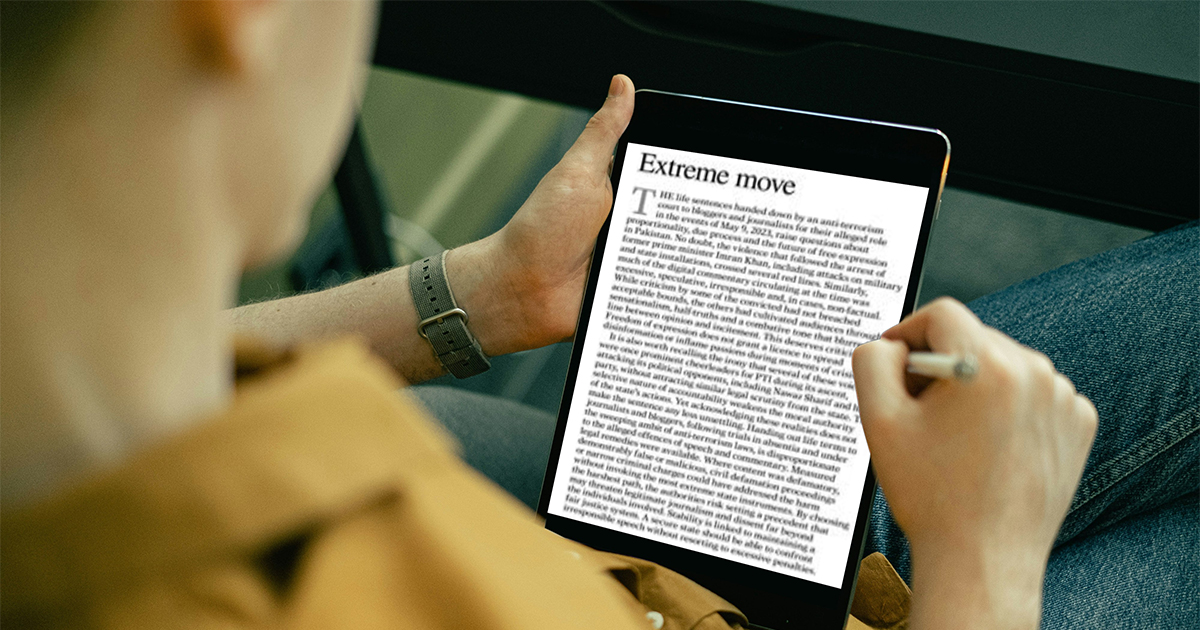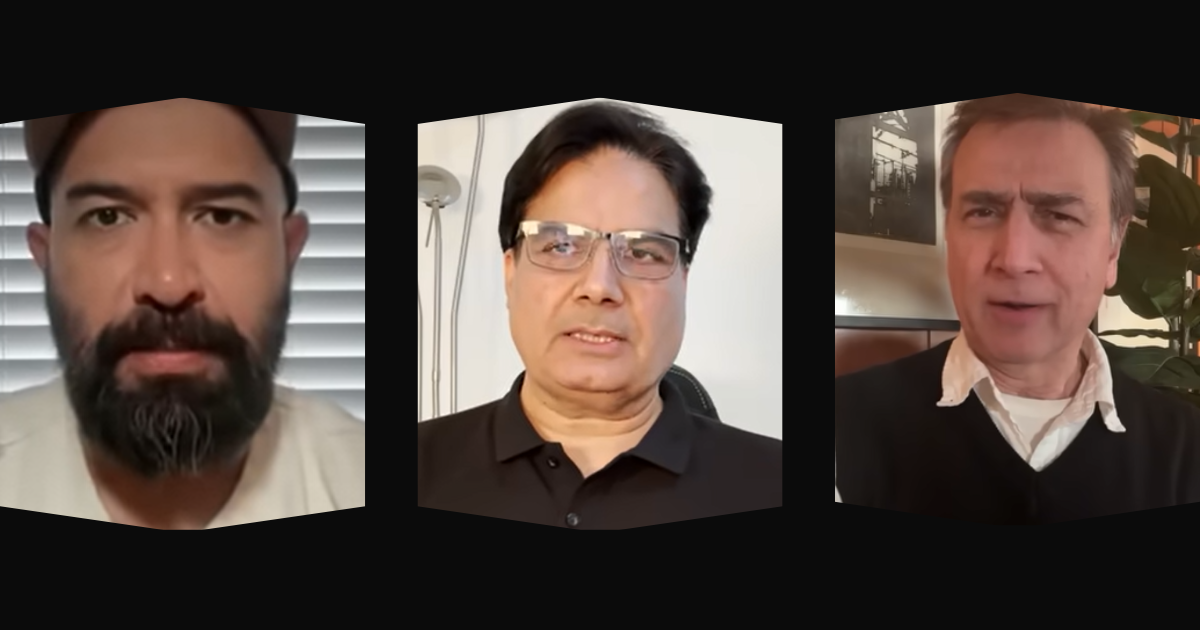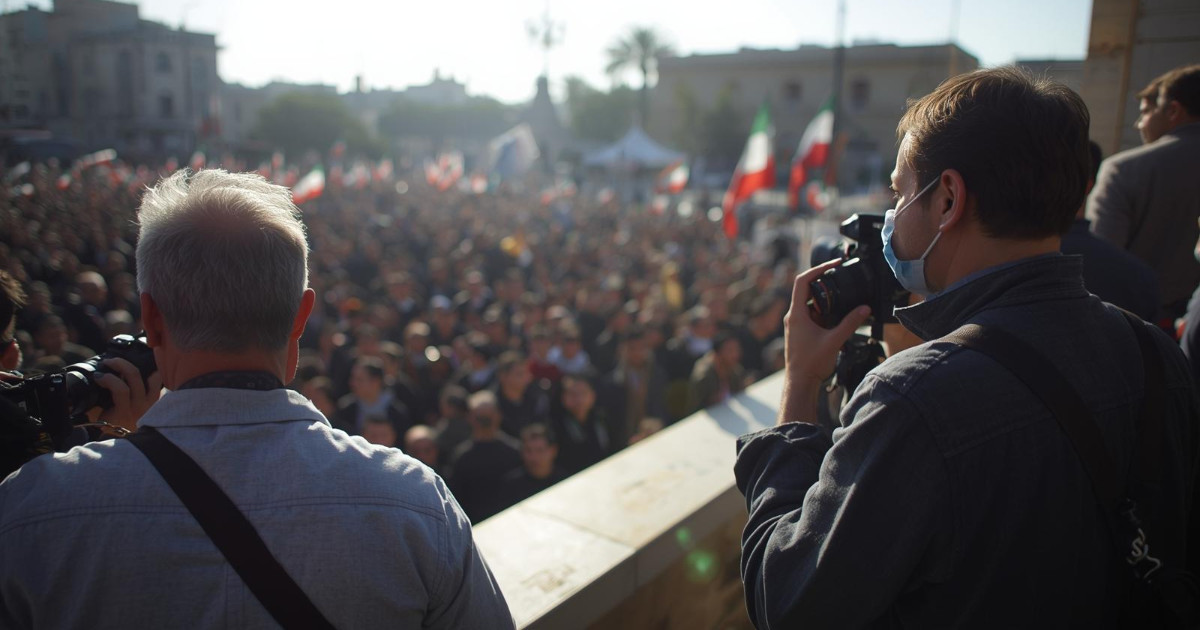They dared to speak the truth: Now Pakistan is erasing them from the internet!
JournalismPakistan.com | Published: 8 July 2025 | JP Special Report
Join our WhatsApp channel
Pakistan's media is increasingly suppressed by state censorship and coercion, stifling dissenting voices. Many journalists face threats, abductions, or forced silence as alternative media channels emerge to challenge the narrative.Summary
ISLAMABAD—In today’s Pakistan, the cost of speaking truth to power is rising fast, and nowhere is that more evident than in the country’s deteriorating media landscape. Once hailed for its vibrant press and fearless journalism, Pakistani media now finds itself gasping for air, suffocated by state censorship, coercive tactics, and systematic efforts to silence dissent.
The latest in a series of blows came when the government approached the court to block the YouTube channels of prominent journalists, including Imran Riaz Khan, Moeed Pirzada, Matiullah Jan, Sabir Shakir, and others. The petition, filed by the National Cyber Crime Investigation Authority (NCCIA), accused these channels of spreading “false, misleading and fake information” and inciting ill-will against state institutions. The government wants Google to remove or block these voices—an alarming signal of how deeply digital censorship has infiltrated Pakistan’s democratic framework.
But this isn’t the first attempt to tighten the noose.
Mainstream media have long faced pressure, from “advice” phone calls to outright blackouts. Journalists critical of the military or government policies have faced FIRs, abductions, character assassination, or professional exile. Talk shows have been abruptly taken off the air. Media houses have had their advertisements pulled or circulation restricted as punishment for stepping out of line.
YouTuber Imran Riaz Khan was abducted, his whereabouts unknown for months. Matiullah Jan was similarly kidnapped outside a school in Islamabad in 2020. Ahmad Noorani, who exposed corruption within the judiciary and military elite, has been targeted repeatedly, even from exile.
This climate of fear has forced many journalists to self-censor or flee.
As mainstream platforms fall silent, a powerful shift is taking place online. Social media has emerged not just as an alternative but as a lifeline for dissenting voices.
Platforms like YouTube, X (formerly Twitter), and TikTok are now home to independent journalists and activists who refuse to be silenced. Though not immune to harassment, algorithm manipulation, or account suspensions, these platforms have enabled truth-seekers to reach millions, free from newsroom politics or corporate compromises.
YouTubers like Sabir Shakir, Haider Mehdi, and Siddique Jan have built followings that rival traditional TV viewership. They’ve become household names, especially among the politically aware youth who have grown skeptical of sanitized, state-approved broadcasts.
Despite internet throttling, temporary bans, or cyber laws aimed at policing content, this digital resistance persists. Hashtags trend within minutes. Leaked videos and alternative narratives reach the masses. The state's attempt to control the narrative is increasingly being challenged—and often defeated—by people with smartphones and conviction.
The heart of the issue isn’t technology or policy. It’s control.
A state that demands unwavering loyalty sees independent journalism as a threat. Yet, without a free press, a society loses its ability to question, to hold power accountable, and to grow. Pakistan is now navigating a treacherous path where journalists are seen not as watchdogs but as enemies.
But journalism in Pakistan refuses to die. It may be gagged, threatened, distorted—but it is not silent. From underground newsletters during military dictatorships to viral YouTube exposés today, the spirit of resistance continues.
In the end, the truth finds a way.
انÛÙˆÚº Ù†Û' سچ بولنÛ' Ú©ÛŒ جسارت Ú©ÛŒ — اب پاکستان انÛیں انٹرنیٹ سÛ' مٹا رÛا ÛÛ'
آج کا پاکستان ÙˆÛ Ù…Ù„Ú© Ù†Ûیں رÛا جÛاں آزاد میڈیا کا بول بالا تھاÛ" صØاÙیوں Ú©ÛŒ آوازیں اب دبائی جا رÛÛŒ Ûیں، چینلز بند ÛÙˆ رÛÛ' Ûیں، اور اختلاÙ٠رائÛ' کرنÛ' والÛ' صØاÙÛŒ یا تو غائب Ûیں یا جلاوطنÛ"
Øکومت Ù†Û' Øال ÛÛŒ میں عدالت سÛ' درخواست Ú©ÛŒ ÛÛ' Ú©Û Ù…Ù…ØªØ§Ø² صØاÙیوں جیسÛ' عمران ریاض خان، معید پیرزادÛØŒ مطیع Ø§Ù„Ù„Û Ø¬Ø§Ù†ØŒ صابر شاکر، اور دیگر Ú©Û' یوٹیوب چینلز Ú©Ùˆ بلاک کیا جائÛ'Û" این سی سی آئی اÛ' Ù†Û' الزام لگایا Ú©Û ÛŒÛ Ú†ÛŒÙ†Ù„Ø² ریاستی اداروں Ú©Û' خلا٠"جھوٹی اور اشتعال انگیز" معلومات پھیلا رÛÛ' ÛیںÛ" Ú¯ÙˆÚ¯Ù„ سÛ' درخواست Ú©ÛŒ گئی ÛÛ' Ú©Û Ø§Ù† چینلز Ú©Ùˆ Ûٹایا جائÛ'Û"
ÛŒÛ Ù¾Ûلا موقع Ù†ÛیںÛ" پاکستان میں میڈیا پر دباؤ ایک مستقل Ø±ÙˆÛŒÛ Ø¨Ù† چکا ÛÛ'Û"
جب دبایا جاتا ÛÛ' تو سوشل میڈیا بولتا ÛÛ' جب مرکزی میڈیا خاموش ÛÙˆ جاتا ÛÛ'ØŒ سوشل میڈیا آواز بن جاتا ÛÛ'Û" یوٹیوب، ایکس (Ù¾ÛÙ„Û' ٹوئٹر)ØŒ اور Ù¹Ú© ٹاک جیسÛ' پلیٹ Ùارمز پر اب ÙˆÛ ØµØاÙÛŒ موجود Ûیں جو ØÙ‚ بات Ú©ÛÙ†Û' سÛ' Ù†Ûیں ڈرتÛ'Û"
صابر شاکر، Øیدر Ù…Ûدی اور صدیق جان جیسÛ' صØاÙیوں Ù†Û' لاکھوں Ùالوورز بنا Ù„ÛŒÛ' Ûیں، جو Ù¹ÛŒ ÙˆÛŒ چینلز Ú©ÛŒ ریٹنگ سÛ' بھی Ø²ÛŒØ§Ø¯Û Ø§Ø«Ø± رکھتÛ' ÛیںÛ" ÛŒÛ Ù†ÙˆØ¬ÙˆØ§Ù†ÙˆÚº میں خاص طور پر مقبول Ûیں، جو ریاستی بیانیÛ' سÛ' بیزار ÛÙˆ Ú†Ú©Û' ÛیںÛ" اصل Ù…Ø³Ø¦Ù„Û Ù…Ø¹Ù„ÙˆÙ…Ø§Øª Ù†Ûیں، Ø¨Ù„Ú©Û Ú©Ù†Ù¹Ø±ÙˆÙ„ ÛÛ'Û" جب صØاÙیوں Ú©Ùˆ دشمن تصور کیا جائÛ' تو Ù…Ø¹Ø§Ø´Ø±Û Ø³ÙˆØ§Ù„ کرنÛ' Ú©ÛŒ طاقت Ú©Ú¾Ùˆ بیٹھتا ÛÛ'Û"
لیکن پاکستان میں صØاÙت Ù†Û ØªÙˆ مری ÛÛ' اور Ù†Û ÛÛŒ مرÛ' Ú¯ÛŒÛ" چاÛÛ' زنجیروں میں جکÚ'ÛŒ ÛÙˆ یا جلاوطن، سچ بولنÛ' والÛ' آج بھی موجود ÛیںÛ"
آخر میں، سچ اپنا Ø±Ø§Ø³ØªÛ Ø¨Ù†Ø§ لیتا ÛÛ'Û"
KEY POINTS:
- Government targets YouTube channels of prominent journalists to suppress dissent.
- Mainstream media faces significant pressure and censorship from state authorities.
- Social media platforms become crucial for independent journalism in Pakistan.
- Journalists risk abduction or character assassination for their work.
- Despite repression, the spirit of resistance in journalism persists.

























